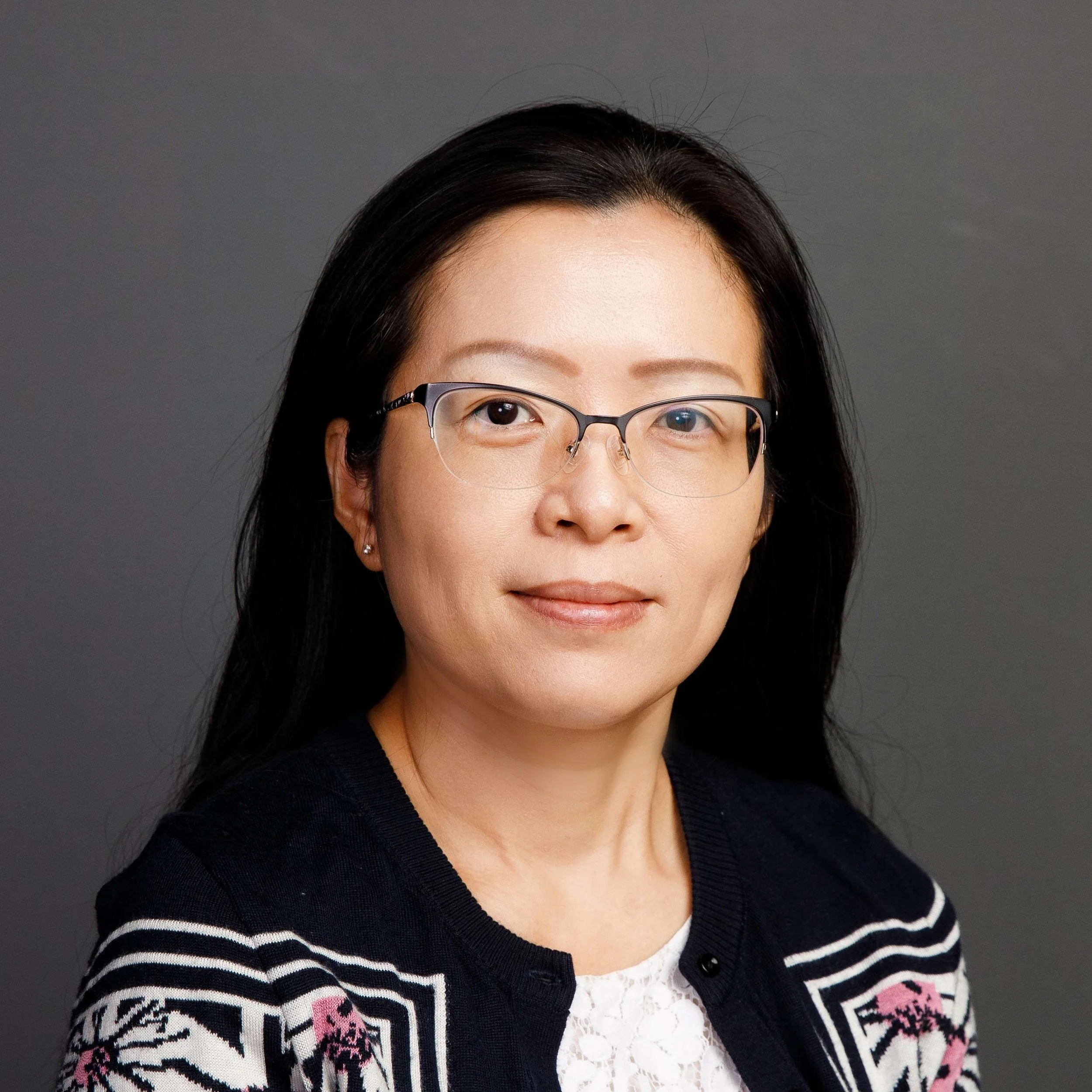Fang Chen, Senior Data Analyst
High up in the pine tree tops of southern China, surrounded by waves and mountains, was once a girl knocking down pine nuts with a set of homemade tools. Elementary school friends chattered amongst the pine needles as they shook the branches. Fang Chen looks back at the memory fondly as she sits at her desk tucked half a world away in Arizona.
Between now and then she continued her education, leaving home to pursue her bachelor’s degree at Shangdong University and later her PhD from Peking University. She chased her passion for science all the way to the United States where she made a home for herself in Arizona joining ASU as a research scientist under the late Dr. NJ Tao.
Since then, Chen has worked in a variety of roles including conducting cutting-edge research in the field of nanomaterials and molecular electronics. She studied the electron transport properties of small single molecules across two metal electrodes, focusing on how their conductivity depends on molecular structure, anchor groups, and external stimuli, such as optical sources.
Chen additionally dedicated several years to investigating big molecules, including single-layer graphene. Notably, she designed and developed the first liquid-gated Graphene Field Effect Transistor (GFET) devices, achieving a three order of magnitude enhancement in carrier mobility compared to conventional solid-state GFET. Her research has resulted in over 25 publications (Google Scholar Link) in prestigious journals such as Nature Nanotechnology, Nano Letters and others.
More recently, she has collaborated with Dr. Erica Forzani and other faculty at Arizona State University’s Biodesign Institute to analyze biomarker data for personal health management and early disease diagnosis. She developed data processing algorithms for large biomarker datasets and employed machine learning techniques to evaluate biomarker performance and screening accuracy. These efforts played a critical role in securing research funding and advancing the projects.
In July, Chen joined the EBP Secretariat as a Senior Data Science Specialist. Her main goal is to implement core data service and analytics tools for the EBP. She is particularly drawn to the position for its mission to create a genomic library of all eukaryotic species for the betterment of our planet.
“This project is immensely challenging, and I deeply admire Dr. Harris Lewin's courage to lead the effort on sequencing the millions of eukaryotic species on earth. I am beyond thankful to be part of the team and hope to make valuable contributions,” says Chen.
Chen has collaborated with many people from diverse cultures and backgrounds, earning recognition as a great team player with a joyful heart and open mind. She will play a critical role in coordinating international efforts to maximize the productivity and efficiency of nearly 60 EBP Affiliated Projects based in 23 countries.
“I am pleased and excited to welcome Dr. Fang Chen as a Senior Data Science Specialist at the global Secretariat of the EBP. Dr. Chen’s research accomplishments, data management, and managerial skills will be a huge asset to the EBP community,” said Harris Lewin, Chair of the EBP Executive Council and Research Professor at ASU.
Outside of work, Fang is a mother of three children, ranging from middle school to elementary school. In their free time, they love playing board games, reading together, and enjoying outdoor activities such as hiking and camping.
The EBP looks forward to the wonderful work that will come out of Chen’s involvement in the EBP Secretariat as it continues to “sequence life for the future of life.”
Written by: Maja Peirce (Earth BioGenome Project: Communications & Creative Services Specialist)

